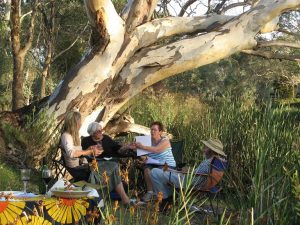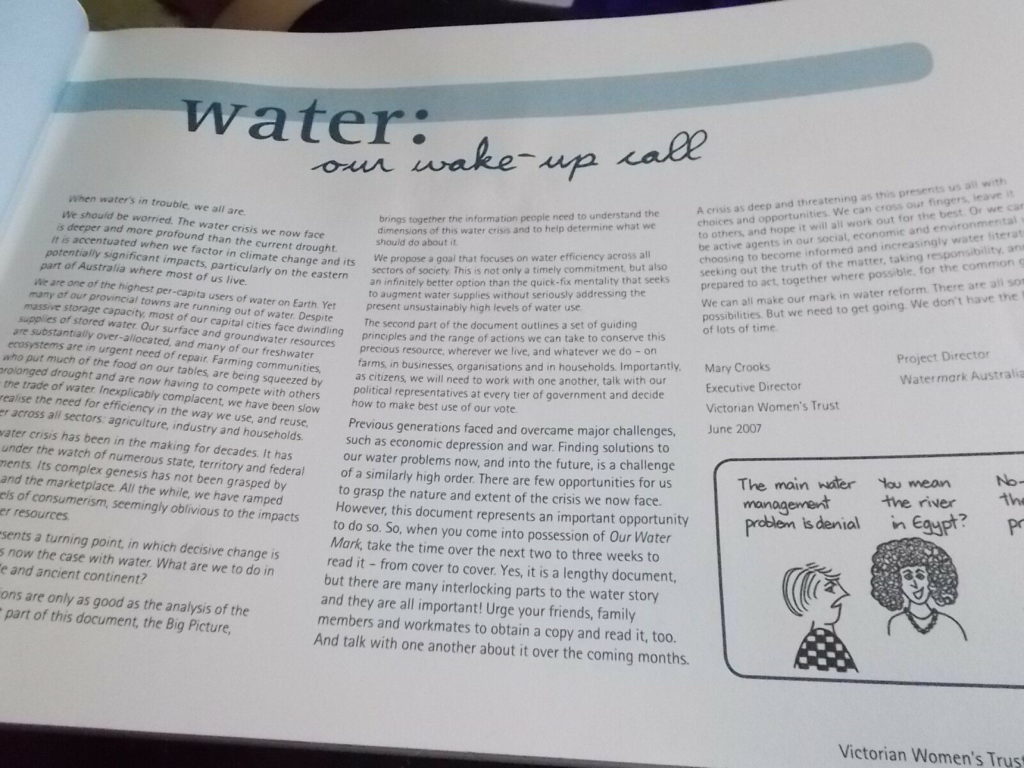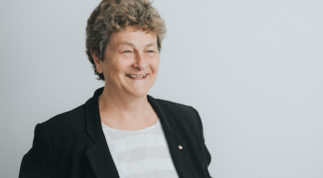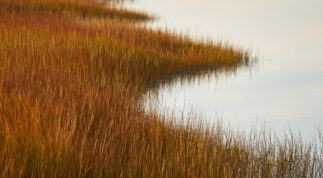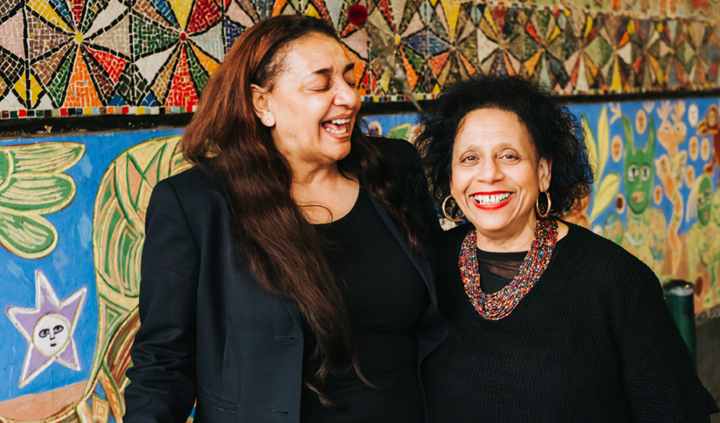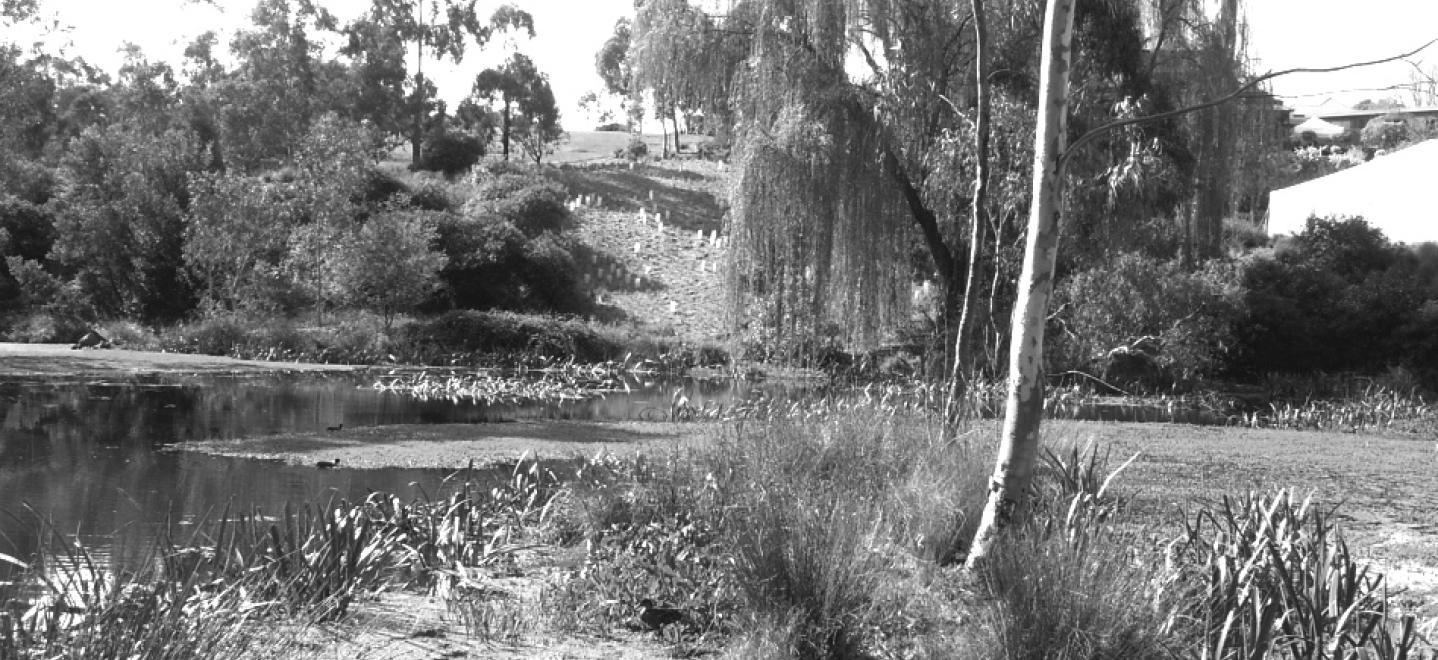
Watermark
With dams running low, years of below average rainfall and demand for water growing, Watermark Australia was a timely and innovative response to an urgent policy problem. Australia has historically lent heavily upon rivers to satisfy growing human demand for water. Fresh water shortages were ‘fixed’ with engineering solutions – a new dam or pipeline.
Published in 2007, Watermark Australia re-framed the debate around water, emphasising the social, cultural and environmental context of water use.
